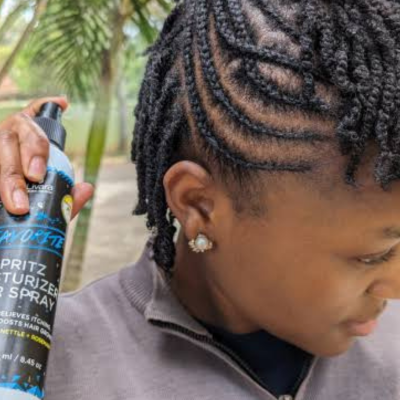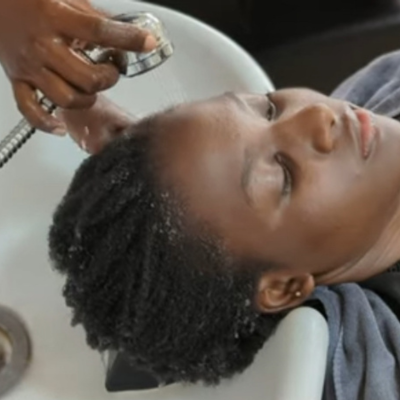- Support 24/7
- +1 (480) 468-4543
- livara@mylivara.com
The Surprising Link Between Hair Relaxers and Brain Cancer: What You Need to Know
4 Ways To Effectively Moisturize 4C Hair
March 15, 2024Can You Moisturize 4C Hair Without Wetting It?
March 17, 2024
In a groundbreaking study, researchers at the Kenya Medical Research Institute (KEMRI) have uncovered a concerning connection between hair relaxers and brain cancer. This revelation has sent shockwaves through the beauty industry and prompted a reevaluation of the risks associated with common hair treatments. Understanding the implications of this discovery is crucial for both consumers and professionals in the hair care sector.
Hair relaxing, a widely practiced procedure particularly among individuals with tightly coiled hair seeking straighter styles, involves the application of powerful chemicals to modify the hair’s protein structure. Among the key ingredients in many hair relaxers is formaldehyde, a well-known carcinogen that has raised significant health concerns.
The International Agency for Research on Cancer (IARC) has classified formaldehyde as a Group 1 carcinogen, signifying its established carcinogenicity in humans. Of particular concern are the potential long-term health implications associated with repeated or prolonged exposure to formaldehyde, especially in occupational settings such as hair salons which offer the relaxing service. Studies have suggested a potential link between formaldehyde exposure and various cancers, including brain cancer.
The Link to Brain Cancer
The recent study conducted by KEMRI researchers has shed light on a disturbing correlation between hair relaxers and an increased risk of brain cancer. The findings suggest that prolonged exposure to certain chemicals found in these products may have carcinogenic effects, particularly when absorbed through the scalp and skin. While the exact mechanisms behind this link are still being investigated, the presence of potentially harmful ingredients in hair relaxers raises significant concerns about their safety.
Concerns for Public Health
The implications of this research extend beyond individual cosmetic choices to broader public health considerations. With millions of people worldwide regularly using hair relaxers, the potential health risks associated with these products cannot be overlooked. As awareness of the link to brain cancer grows, there is a pressing need for regulatory agencies and manufacturers to reassess the safety standards governing hair care formulations. Furthermore, consumers must be empowered with accurate information to make informed decisions about their hair care products.
Ultimately, the presence of formaldehyde in some hair relaxers emphasizes the imperative for greater awareness, transparency, and regulatory oversight within the beauty industry. By advocating for safer alternatives and supporting initiatives aimed at minimizing exposure to harmful chemicals, consumers can empower themselves to make informed choices that prioritize both their aesthetic preferences and their long-term health and well-being.
Navigating Alternatives
Given these discoveries, lots of people might be thinking about using different things instead of chemical hair relaxers. It’s important for people to know that having natural hair doesn’t mean they have to feel pressured to relax it just to keep it manageable. Natural hair can be perfectly manageable and beautiful with the right care practices. Things like protective styling, keeping your hair moisturized regularly, and giving it proper general care like shampooing can make a big difference.
Embracing your natural hair texture is not only empowering but also a journey towards healthier and happier hair. So, don’t feel like you need to change your natural hair just to fit into certain beauty standards. With the right techniques and care, natural hair can thrive and look amazing.
Conclusion
The revelation of a link between hair relaxers and brain cancer serves as a wake-up call for consumers and industry stakeholders alike. As we strive for beauty and self-expression, it is important that we prioritize our health and safety. By staying informed, advocating for stricter safety regulations, and exploring safer alternatives, we can protect ourselves and future generations from the potential risks associated with chemical hair treatments.
Source: https://nation.africa/kenya/news/kemri-researchers-link-hair-relaxers-to-brain-cancer-4548006



